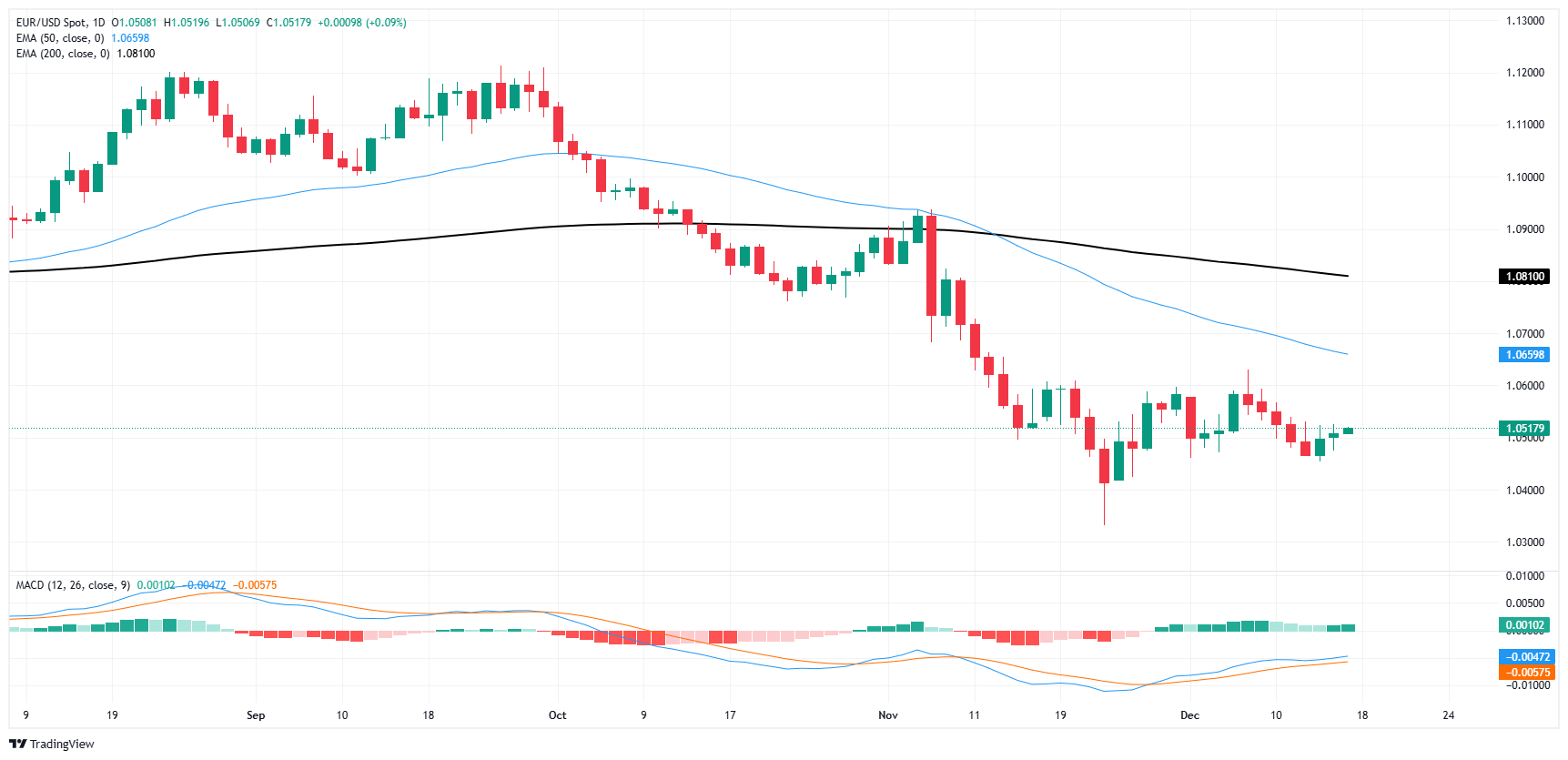EUR/USD struggles to make headway above 1.05
- EUR/USD is trading thin and flat near the 1.0500 handle as bulls struggle.
- Another Fed rate call and other key US data will keep Fiber focused on the US side this week.
- Fed expected to cut rates for a third consecutive meeting on Wednesday.
EUR/USD struck a sluggishly bullish note on Monday, drifting into the high end of near-term consolidation just north of the 1.0500 handle, albeit with a notable lack of conviction. European data is comparatively limited this week, leaving Fiber traders to face a hefty data docket on the US side of things.
Markets largely overlooked multiple European Central Bank (ECB) officials' appearances to kick off the new week. European December PMI figures surpassed expectations, yet Services PMI surveys remain in contraction due to concerns over a deepening economic slowdown in Europe, which continues to unsettle investors and businesses.
Markets are anticipating the Fed’s rate decision on Wednesday, with a 25 bps rate cut fully factored in at 99.1%, according to the CME’s FedWatch Tool. Traders will pay close attention to the Fed’s revised Summary of Economic Projections (SEP) and the interest rate predictions from policymakers.
US PMI data for December presented a mixed picture: the Services PMI hit multi-year highs, whereas the Manufacturing PMI dropped further below 50.0, indicating a contraction. Retail Sales figures will be released on Tuesday but may attract limited market focus ahead of the Fed’s final rate decision of the year.
EUR/USD price forecast
The EUR/USD daily chart reflects an overall bearish trend, as the pair continues to trade below both the 50-day EMA at 1.0659 and the 200-day EMA at 1.0810. The downward-sloping moving averages confirm sustained selling pressure, with the euro unable to regain meaningful ground against the dollar. The MACD indicator remains subdued, with its signal line hovering below zero, signaling weak momentum and caution from buyers.
The most recent candle reveals modest bullish action as EUR/USD closed slightly higher at 1.0517, marking a small rebound after several sessions of sideways movement. However, the pair remains unable to convincingly break above the 1.0550 resistance zone, suggesting limited upside potential in the near term. If buyers gain traction, a retest of the 50-day EMA near 1.0660 could be on the cards. Conversely, failure to sustain this rebound may expose the pair to renewed selling pressure, with support at 1.0450 likely to come into focus. The overall sentiment remains bearish until a clear break above key resistance levels materializes.
EUR/USD daily chart
Euro FAQs
The Euro is the currency for the 20 European Union countries that belong to the Eurozone. It is the second most heavily traded currency in the world behind the US Dollar. In 2022, it accounted for 31% of all foreign exchange transactions, with an average daily turnover of over $2.2 trillion a day, according to data from the Bank of International Settlements. EUR/USD is the most heavily traded currency pair in the world, accounting for an estimated 30% of all transactions, followed by EUR/JPY (4%), EUR/GBP (3%) and EUR/AUD (2%).

